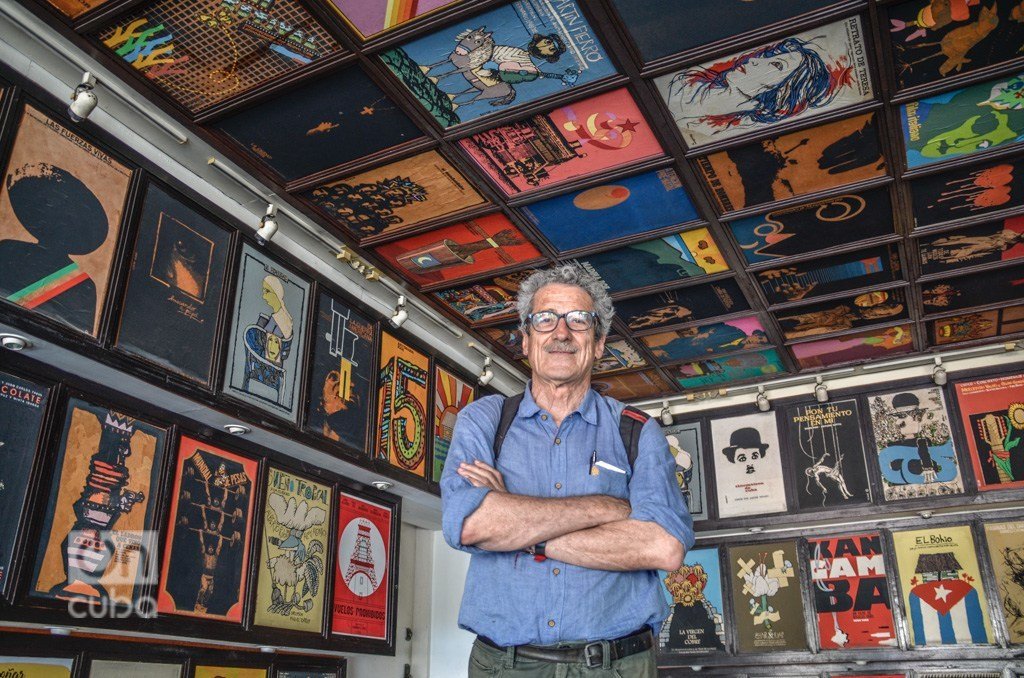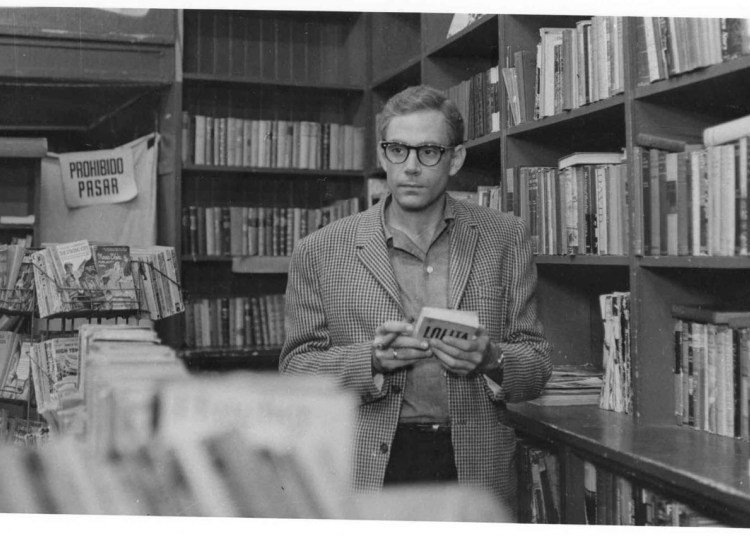A list with the most representative of Cuban cinema produced by the Cuban Institute of Cinema Art and Industry (ICAIC) since 1959 was published by the Cinematheque of Cuba, on the occasion of the 60th anniversary of the institution, responsible for the safeguarding of national film heritage.
The survey was convened last year, when the 60th anniversary of ICAIC’s foundation was celebrated, and a hundred people participated in it, including 53 national critics, researchers or journalists; 25 filmmakers or people linked to the island’s cinema and 22 foreign critics, researchers or journalists.
The results were divided into three categories: fiction films, documentaries and animated cartoons. Another list by specialties was also formed, where the participants gave their vote to the materials with the best Screenplay, Photography Direction, Edition, Art Direction and Soundtrack.
Among the directors most represented in the voting are Tomás Gutiérrez Alea (Titón) and Fernando Pérez, both with six works included in the lists, as well as documentary filmmaker Santiago Álvarez, while Humberto Solás also excels with five materials.
However, the filmmaker most mentioned in the survey turns out to be Juan Padrón, for his work in the direction of animated cartoons. The creator of the character of Elpidio Valdés, presents ten works that include animated features, animated shorts and the well-known series Elpidio, Quinoscopios, as well as the Filminutos, the latter with other filmmakers.
Memories of underdevelopment (1968), by Tomás Gutiérrez Alea, is the first on the list in the fiction section, where Lucía (1968), by Humberto Solás, is also inserted; Strawberry and Chocolate (1993), by Gutiérrez Alea and Juan Carlos Tabío; La muerte de un burócrata (1966), also by Titón; La primera carga al machete (1969), by Manuel Octavio Gómez; La última cena (1976), by Gutiérrez Alea, and La bella del Alhambra (1989), by Enrique Pineda Barnet, shared the sixth place, among a total of 25 films in 20 positions.
The fiction section is completed with De cierta manera (1974), by Sara Gómez; Aventuras de Juan Quinquin (1967), by Julio García Espinosa; Conducta (2014), by Ernesto Daranas; Portrait of Teresa (1979), by Pastor Vega; Madagascar (1994), and Clandestinos (1987), both by Fernando Pérez; Papeles secundarios (1989), by Orlando Rojas; Los sobrevivientes (1978), by Gutiérrez Alea; El hombre de Maisinicú (1973), by Manuel Pérez; Soy Cuba (1964), co-production with the former Soviet Union, directed by Mikhail Kalatozov; José Martí, el ojo del canario (2010), by Fernando Pérez; and Plaff or Demasiado miedo a la vida (1988), by Juan Carlos Tabío.
It closes with Las doce sillas (1962), by Titón, and La vida es silbar (1998), by Fernando Pérez; Cecilia (1982), by Solás; Video de familia (2001), by Humberto Padrón; and two titles of the authorship of Solás in the last position: Manuela (1966) and Un hombre de éxito (1986).
The documentaries are headed by Suite Habana (2003), by Fernando Pérez, together with Now! (1965), by Santiago Álvarez; followed by Por primera vez (1967), by Octavio Cortázar; Vaqueros del Cauto (1965), by Oscar Valdés; Ociel del Toa (1965), by Nicolás Guillén Landrián; Nosotros, la música (1964), a feature directed by Rogelio Paris; Hanoi, martes 13 (1967) and Ciclón (1963), by Santiago Álvarez; Coffea Arábiga (1968), by Guillén Landrián; Historia de un ballet (1962), by José Massip; and 79 primaveras (1969), L.B.J. (1968) and Mi hermano Fidel (1977), these three by Santiago Álvarez.
The remaining that were chosen were Muerte y vida en El Morrillo (1971), by Oscar Valdés; ¡Viva la República! (1972), by Pastor Vega; Una isla para Miguel (1968), by Sara Gómez; El fanguito (1990), by Jorge Luis Sánchez; Hombres de Mal Tiempo (1968), by the Argentine Alejandro Saderman; and Girón (1972), a feature documentary by Manuel Herrera; En la otra isla (1968), by Sara Gómez; Simparelé (1974), by Humberto Solás; Mujer ante el espejo (1983), by Marisol Trujillo; Cayita, una leyenda, Cayita, una gesta (1980), by Luis Felipe Bernaza and this section ends with Kid Chocolate (1987), by Gerardo Chijona.
The well-known ¡Vampiros en La Habana! (1985), by Juan Padrón, heads the animated cartoons section, which also includes the series Elpidio Valdés (1974-2015) and Filminutos (1980-2006), and the animated feature Elpidio Valdés contra dólar y cañón (1983).
The list continues with 20 años (2009), by Bárbaro Joel Ortiz; the Quinoscopios series (1985-1987), and the short ¡Viva papi! (1982), both by Padrón; the feature Meñique (2014), by Ernesto Padrón; El bohío (1984), by Mario Rivas; La luna en el jardín (2012), co-directed by Adanoe Lima and Yemelí Cruz; and Más vampiros en La Habana (2003), by Juan Padrón.
Three by Tulio Raggi follow: El paso del Yabebirí, El alma trémula y sola and the series El negrito cimarrón (1975-2010); the short La silla (1974) and the first animated feature in the history of Cuban cinema, Elpidio Valdés (1979), both by Juan Padrón; Un sueño en el parque (1965), by Luis Rogelio Nogueras; A Norman McLaren (1990), by Manuel Marcel, the feature Mafalda (1994), by Padrón; the Matojo series (1981-1985), directed by Manuel Lamar (Lillo); and this category closes with La prensa seria (1960) and El cowboy (1962), by Jesús de Armas; Los dos príncipes (2017), by the binomial Adanoe Lima-Yemelí Cruz; Los indocubanos (1964), by Modesto García; Nikita Chama Boom (2010), by Juan Padrón; and Osain (1966), co-directed by Hernán Henríquez and Tomás González.

In the technical sections several of the aforementioned films are mentioned, as well as new ones for quality in their respective categories, such as Adorables mentiras (Senel Paz) and La película de Ana (Eduardo del Llano, Daniel Díaz Torres) within the best scripts, Los días del agua in the best photography and art direction sections, among other similar cases.
The survey published by the Cinematheque of Cuba also recognized the work of posters, with the best designs made for Cuban cinema: Lucía (Raúl Martínez), Por primera vez (Eduardo Muñoz Bachs), Fresa y chocolate (Ernesto Ferrán), Retrato de Teresa (Servando Cabrera Moreno), ¡Vampiros en La Habana! (Nelson Ponce), Now! (Alfredo Rostgaard), La última cena (René Azcuy), Niños desaparecidos (Eduardo Muñoz Bachs), Rita (René Azcuy), Clandestinos (Julio Eloy Mesa), La bella del Alhambra (Julio Eloy Mesa), Aventuras de Juan Quin Quin (Eduardo Muñoz Bachs) and Historias de la Revolución (Eduardo Muñoz Bachs).









